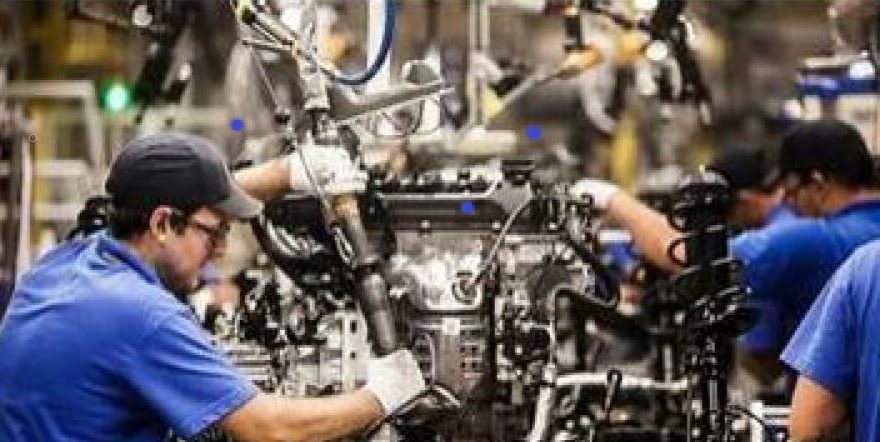First of all, it is good that we remember what we mean when we talk about industry: the activity that has the purpose of transforming raw materials into finished or semi-finished products, using an energy source and in many occasions through the contribution of labour.
It is known that the industry endures the crisis better than the service sector, which tends to collapse more easily in front of adverse situations. For this reason, the fact of being a country of hostel and tourism makes us sensitive to economic situations.
Each point of growth in industrial GDP means 150,000 more jobs, in addition to what it means to reduce the trade deficit.
All the incentives that are given in the industrial world will be easily recovered by the State, and in an increased way, because the industrial companies are more stable and have a longer period in the market.
We are going to put 4 important elements on the table that can help us guide this situation, and consequently to find ways out of it.
-
We have to be moderately optimistic, based on a series of certain elements:
- We are facing bad times, true, the worst ones of the last years. But if we are able to do it in the right way, that all the efforts are concentrated in the same direction, this will be short. We have to support the people who have to lead this crisis, and they have to make our support possible.
-
The industry has a long path in our country. We have a very important growth capacity, because we are in a very low position in the European ranking. We need to do it gaining muscle and dimension. Keep the SMEs we have, but creating large companies over the € 100 Mio. turnover.
-
We can and must adapt our industry, not only to be able to respond independently of our supply needs, but also due to its lower volatility when it comes to maintaining its productive structures at the worst times.
-
Although this is not logically the case in all, the large Spanish industry is a benchmark for productivity in certain sectors as relevant as the automobile.
-
Not all the industry will be affected equally. The smallest one will suffer more, and in any case, it will depend on how closely each of the sectors is with the sectors that are going to have more restrictions (tourism, hygiene, etc.).
-
And for this, I understand that three attitudes and policies are needed at the public and private levels:
-
Bet on new business models by all social agents, to redefine our industry.
-
Change the production model: it is necessary to intensively invest and support the knowledge, technology, contact with talent, with universities, also for those companies that their markets have been affected in a more important way can reinvent themselves to be able to find niches where they can compete better.
-
Recover social dialogue and trust between employers and workers, in open and above all flexible dialogues where there are no winners and losers; only winners, in order to:
-
Reform the labour market, avoiding its rigidities and obstacles to hiring.
-
Reform the market for goods and services and invest in activities that generate more innovation and productivity.
-
-
-
In view of the above, I propose three other precise actions:
-
Subsidize active labour policies, not unemployment. Establish hiring aids, not testimonial, but as many as possible, even supplementing for a time the wages of certain workers using public coffers for this. With this, it will be possible to lower labour costs, reduce the ranks of unemployment and increase social contributions.
-
Carry out reindustrialization policies and maintenance of industrial capacity, especially aimed at the manufacturing industry, financing the necessary investments in times of private financing difficulties.
-
Encourage the hiring of workers through job grants or the compatibility of work with other types of grants.
-
-
What should not be done? As important as the above is not to make certain mistakes that can destroy what we do. There are two actions that can be easily incurred, and that I would not do in any case:
-
Promote anti-globalization movements and strategies. Due to the shortage of product that this pandemic has brought, an anti-globalization movement has begun in certain parts of the planet, trying to recover the production of those products that went outside our borders. And some governments, moved by a short-term and populist vision, begin to offer aid to the return of these companies in each territory. And that, I say loud and clear, is a blunder, a gross mistake of unknown consequences. I will dedicate another article to explain why in my opinion this is not what is needed.
-
Invest money in public companies, neither in their maintenance, nor much less in their creation. Let us maintain, yes, goods and social services with those that support a welfare state (education, health), combining public-private initiatives. But not in industry. History has shown not once, but several times, that it is a mistake that is paid for in the form of loss socialization.
-
Although the form is being debated now, one way or the other, money will come from Europe. Money, to support innovation, research or the green transition, seeking a rapid recovery and that we are all better prepared for when the next crisis comes. Money that in one way or another, whether through grants or soft loans, we will have to know well in what we are going to use. What is nuclear to strengthen it and the rest, redirect it.
We need to use these funds to come toa pre-COVID.19 point as soon as it is possible, through an appropriate economic policy. It depends on us whether we are able to make thorough use of the resources or that in a few years we will find ourselves talking about the same topics.
Next chapter: Third part-What to do at each company.

